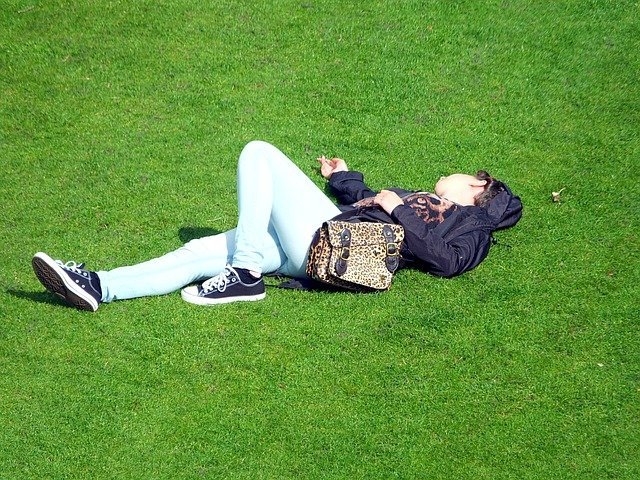Sufficient sleep is essential for your health and getting less than 7-8 hours of sleep per night can lead to multiple health problems.
The National Institute of Health has reported that as much as 30% of the American population is getting less than 6 hours of sleep per night and that 31% of high school students are getting far less sleep than they should.
The Center for Disease Control and Prevention recommends 10 hours of sleep for school-going children and 8 hours for adults in order to stay healthy, and the quality of the sleep matters too.
Food can affect the quality of our sleep.
Certain ingredients in what we eat and drink can either disrupt deep sleep patterns or can lead to a great night’s rest, so it’s important to know what to have before bedtime. The National Sleep Foundation recommends no food or drink within thirty minutes before bedtime, but gives a big thumb’s up for sleep-enhancing foods one to four hours before you tuck yourself in.
Here are the Top 12 Choices for a Sleepy Treat:
1. Slices of Sweet Pineapple
Researchers from the Khon Kaen University in Thailand found that pineapple helped to raise the level of melatonin in the body, which resulted in better sleep.
30 healthy adults participated in the study and melatonin levels were closely monitored after each serving of this delicious, tropical fruit. It was found that pineapple increased the level of melatonin in the body by as much as 266%, helping to induce deeper and more restful sleep for longer periods of time.
2. Delicious Lentil Dinner
1 cup of lentils contains as much as 731 milligrams of potassium, which is known to reduce blood pressure, relax muscles and calm nerves. A reduction in stress leads to a more peaceful night’s rest.
3. Mashed or Chopped Bananas
A study at the University of Wisconsin linked potassium rich foods like bananas to improving slow-wave sleep. Slow-wave sleep is the deepest part of the sleep cycle which contributes most significantly to feeling well rested. One cup of bananas contains more than 800 milligrams of potassium, which makes it a great choice right before bedtime.
4. Glass of Warm Milk
Grandma’s advice was right: a glass of warm milk before bedtime really does help you to fall asleep more easily!
Milk is rich in calcium, which stimulates the production of melatonin and induces a deep and peaceful sleep. It also contains tryptophan, a substance which releases serotonin and converts to melatonin: happy and sleepy is a great combination right before bedtime!
One 28 gram serving of almonds contains enough potassium and magnesium to calm nerves, relax muscles and release sleepy chemicals in the brain. A stressful day can lead to a depletion of these important minerals, something that almonds can help to restore to prevent the tossing and turning that can ruin a good night’s rest.
6. Glass of Cherry Juice
A study at the School of Life Sciences was carried out to observe how tart cherry juice could affect sleep patterns, especially because cherries contain naturally occurring melatonin. 20 participants were given two glasses of cherry juice per day for 7 days and their sleep patterns and urinary chemicals were closely monitored.
Researchers concluded that cherry juice significantly elevated melatonin levels, which increased sleeping time and the time spent in the deep sleep cycle.
Having a glass of delicious, tart cherry juice before you hop into bed is a good idea for better rest.
7. Cup of Chamomile Tea
Chamomile is an ancient herbal medicine that has been revered for its sedative effects and is frequently used to fight insomnia.
It has a mild flavor and a relaxing floral fragrance and contains apigenin, a substance which is known to calm nerves and induce a gentle euphoria in the brain. The warmth of the tea is also soothing and helps to relax nerves and muscles, sending signals to your brain to get a few yawns going.
8. Peanut Butter and Toast
Pairing a protein with a carbohydrate has been linked to improving the quality of sleep, which makes peanut butter on toast the perfect bedtime ritual.
The high level of protein in peanut butter stimulates the production of tryptophan, an amino acid which induces sleep. The toast provides the necessary carbohydrates to help increase the absorption of tryptophan as well as making you feel warm, full and cozy.
Researchers from the University of Sydney have found that eating Jasmine Rice 3-4 hours before bedtime can help to improve the quality of sleep.
The results were also published in the American Journal of Clinical Nutrition after Dr. Chin Moi Choi and his colleagues proved that the increase in blood sugar following a jasmine rice meal led to better, faster sleep. 12 healthy men were analyzed with and without a jasmine rice meal and it was found that they fell asleep 40% faster after a bowl of jasmine rice.
10. Dollop of Yogurt and Nuts
The UCLA Sleep Disorders Center recommends having some yogurt before bedtime to boost tryptophan and melatonin levels in the body. By sprinkling almonds, walnuts or pumpkin seeds on top with a light drizzle of honey, you give your body an unbeatable combination of sleepy food!
The nuts contain magnesium for calming nerves and muscles, the honey supplies the glycogen needed for faster tryptophan absorption and the yogurt, of course, supplies the calcium that stimulates all the right chemicals for your brain to say nighty night.
11. Fish with Leafy Greens
Fish contains plenty of Omega 3 fatty acidsm and Vitamin B-6, which are both excellent for improved sleep. The University of Oxford has confirmed that a diet rich in Omega 3 fatty acids leads to better, longer sleep and helps to keep sleep disturbances to a minimum.
Dark leafy greens are loaded with calcium and iron, which improves blood circulation and boosts the level of tryptophan in the brain, promoting deep quality sleep.
12. Cheese and Crackers
This is another great protein and carbohydrate combination, containing plenty of calcium for tryptophan and melatonin stimulation. The crackers help to boost the rate at which tryptophan is absorbed into the bloodstream, sending your body the message to slip into a deep and tranquil sleep.
References:
https://www.cdc.gov/features/dssleep/
https://en.wikipedia.org/wiki/Melatonin
https://www.ncbi.nlm.nih.gov/pubmed/16195124
https://www.sciencedaily.com/releases/2014/03/140306103931.htm
https://sleepcenter.ucla.edu/body.cfm?id=61








